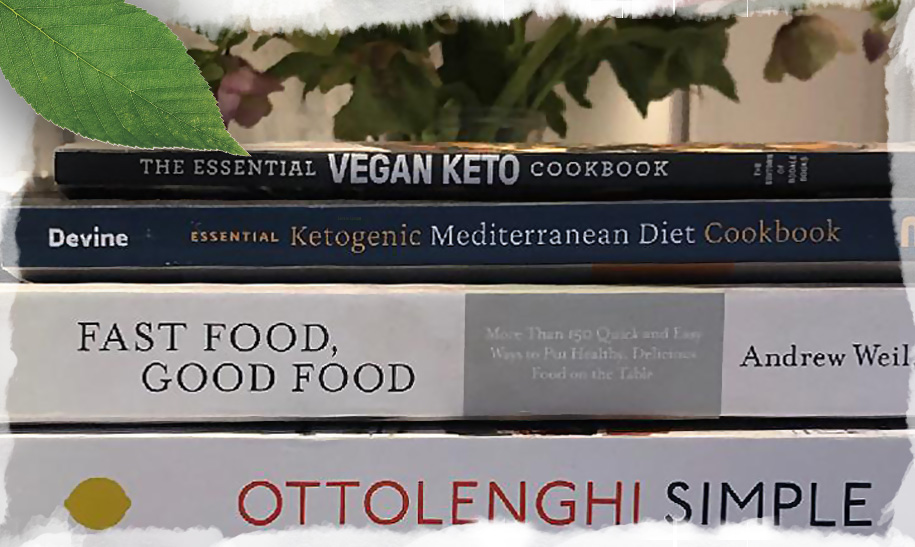Increasing dietary fiber is, in my opinion, one of the best ways to improve your diet. Focusing on this one aspect generally leads to a healthier diet overall, as it typically requires the consumption of more minimally processed plants such as whole grains, fruits and vegetables, legumes, nuts, and seeds. It’s no surprise, then, that diets rich in fiber have been proven to lower the risk of developing chronic disease and improve longevity!
Continue reading “Fiber and Ferment–Two of My Favorite “F” Words”February American Heart Month
Heart ❤️ disease has remained the leading cause of death in the U.S. for over a century, yet recent surveys reveal a concerning lack of awareness among Americans about its gravity. Despite claiming more lives than cancer and chronic lower respiratory diseases combined, many fail to recognize its impact.
Continue reading “February American Heart Month”Reducing Risk of a Winter Infections
While it may not make front page headline news anymore, viral infections haven’t gone away. Here are some common sense strategies to reduce your risk of getting sick this winter.
Continue reading “Reducing Risk of a Winter Infections”Thriving in Winter
How to Stay Healthy and Vibrant through the Winter (in western NY!)
Humans, like virtually all plants and animals, are governed by seasonal changes and biological rhythms. These patterns are clearly evident in medicine and something I have noticed over my years of practice in this part of the country. As we get deeper into winter, many notice changes in mood and overall wellness. The annual cycles of the sun and geography indeed can have a tremendous impact on well-being. While days start to get longer after the winter solstice, the winter doldrums can hang on for many more months. In fact, most people who suffer from winter doldrums and seasonal depression typically don’t see symptoms lift until May, after the official beginning of spring.
Continue reading “Thriving in Winter”Rosemary’s Journey from Garden to Plate
As the weather turns colder and the days grow shorter, its presence becomes not only an essential ingredient but also a poetic nod to the art of cherishing and recalling loved ones in a timeless culinary tapestry.
Continue reading “Rosemary’s Journey from Garden to Plate”Tofu: A Versatile and Nutritious Superfood
While I’m not a fan of the term “super food,” if I had to choose one, it would be tofu!
October is Breast Cancer Awareness Month, and it’s important to remember that tofu (soy) is perfectly safe for those with and at risk for breast cancer. In fact, some preliminary studies even suggest that tofu intake is associated with a lower risk of breast cancer.
In this blog post, we’ll explore the versatility and health benefits of tofu, share some delicious tofu recipes, and discuss its role in breast cancer prevention.
Continue reading “Tofu: A Versatile and Nutritious Superfood”Cook your way to a healthy lifestyle.
One of the things that I find really constructive to creating a healthy lifestyle is cooking. Becoming familiar with cooking meals allows you to feed yourself with exactly what specifically your body needs. Feeling comfortable enough with making substitutions in recipes so that they better nourish yourself is an essential step to achieving overall wellness. Additionally, by cooking at home rather than eating out, you can ideally reduce the amount of processed foods you are eating. Eliminating as many processed foods from your diet as possible is another crucial step to a healthier lifestyle. Also, I think it’s really important to cook and eat food that you actually like. Sometimes eating healthy can feel like a sacrifice, like you have to cut out foods that you really like, and lose joy in eating. By cooking, you can learn to make the delicious dishes that you want, and realize that healthy food is actually really tasty!
Continue reading “Cook your way to a healthy lifestyle.”Elevated Levels of Heavy Metals are Common and Concerning
For the past decade I have monitored patients for heavy metals, specifically lead and mercury. I find elevated levels on a weekly basis and, sadly, these results no longer surprise me.
Continue reading “Elevated Levels of Heavy Metals are Common and Concerning”Salt: How Much is Too Much?
Recently I was surprised when a patient who was newly diagnosed with hypertension (high blood pressure) mentioned that she had not been advised to cut back on salt, even after consulting with a nutritionist. This is concerning, as, according to the CDC, it is estimated that 90 percent of Americans ages 2 years and above consume too much salt (sodium), and that 2.5 million deaths around the world could be prevented if our salt consumption was reduced to meet the levels recommended by the World Health Organization (WHO).
Continue reading “Salt: How Much is Too Much?”Timing Matters when Intermittent Fasting
In the 15th century, the word breakfast became used to describe “breaking the fast.” However, when many people start intermittent fasting they tend to skip breakfast and begin eating at lunchtime. Unfortunately they are undermining their weight loss goals, as studies show that the benefits of fasting tend to be diminished when calories are shifted to the latter part of the day.
Continue reading “Timing Matters when Intermittent Fasting”









